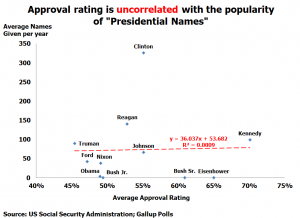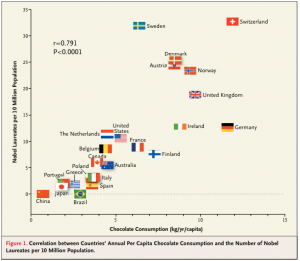A popular news service reported that it costs $241,080 to raise a child and then remarked, “the cost of raising a child is climbing at a rate that many families can’t keep up with.” The news agency cites falling wages and lower employment rates as support for this struggle to keep up. A host of …
Category: Statistics
Permanent link to this article: https://betweenthenumbers.net/2013/10/according-to-a-scrawny-sample-fatter-applicants-are-less-likely-to-get-into-graduate-school/
Permanent link to this article: https://betweenthenumbers.net/2013/10/it-costs-241080-to-raise-a-child-and-other-reasons-why-averages-can-be-completely-uninformative/
Sep 26
Using Fatalities to Predict Humanitarian Aid
Last Tuesday, an earthquake of magnitude 7.7 shook with such violence that it created a new island off the coast of Pakistan, as well as tragically killing at least 515 people and affecting at least 300,000 more. The international community has attempted to provide relief and humanitarian assistance. A 2013 social science paper indicates that …
Permanent link to this article: https://betweenthenumbers.net/2013/09/using-fatalities-to-predict-humanitarian-aid/
Sep 09
Do “Presidential Names” Become More Popular?
An event study captures the impact of a certain event(s) on a marketplace. This technique is most commonly used in the context of the stock market, when analysts study the effects of certain events on stock prices. Analysts look at share prices prior to the event of interest (e.g. a stock split, CEO resignation, etc.) …
Permanent link to this article: https://betweenthenumbers.net/2013/09/which-presidential-name-is-most-popular/
Aug 05
What is the Most Unisex Name in US History?
Names like Grant or Greg are thoroughly associated with males, while Isabelle and Antoinette are clearly associated with females. Other names, however, are significantly more androgynous. If you were to receive an email from an unknown Sam, Morgan, or Jamie, you wouldn’t be sure of the sender’s gender. What makes a name clearly suitable for …
Permanent link to this article: https://betweenthenumbers.net/2013/08/what-is-the-most-unisex-name-in-us-history/
May 28
Is College Worth It?— New Econometric Methods Provide Another Approach
In a previous post, Eric discussed a Brookings Institution policy brief that argued, among other things, that college education is a poor investment for some students. This assertion is based in large part on the negative return on investment (ROI) reported by Payscale.com for certain non-selective colleges. The problem with this sort of analysis, however, …
Permanent link to this article: https://betweenthenumbers.net/2013/05/is-college-worth-it-taking-new-econometric-methods-seriously/
Mar 14
Seventh Circuit bars class certification because of damages
The Seventh Circuit decided Espenscheid vs. DirectSat, Inc., (No. 12-1943, February 4, 2013), upholding the district court’s decision to not certify a class of employees containing wage and hour law violations. The ruling is notable as class certification was denied because the class members had different amounts of claimed work that had not been properly …
Permanent link to this article: https://betweenthenumbers.net/2013/03/seventh-circuit-bars-class-certification-because-of-damages/
Mar 10
Has California’s tax on the rich driven out the poor and middle class?
A recent article from the Wall Street Journal identifies a paradox: (i) “conservative lore” predicted rich people would leave California in response to a massive tax increase, yet, in fact, (ii) poor and middle class people have left instead. As evidence, the article summarizes the following about those who have left the state: 1. Their …
Permanent link to this article: https://betweenthenumbers.net/2013/03/has-californias-tax-on-the-rich-driven-out-the-poor-and-middle-class/
Mar 04
An Example of “Useless” Research that Isn’t
Over the years, Federal funding for the social sciences has come under fire from critics of all sorts, including the House of Representatives, which passed an amendment in 2012 to completely cut the National Science Foundation (NSF) funding for political science in particular. The argument in favor of these cuts usually sounds something like what …
Permanent link to this article: https://betweenthenumbers.net/2013/03/an-example-of-useless-research-that-isnt/
Mar 01
Top Five Reasons that Chocolate Doesn’t Create More Nobel Laureates for Your Country
The article “Chocolate Consumption, Cognitive Function, and Nobel Laureates” recently published in the New England Journal of Medicine (NEJM) demonstrates that even published research may contain errors. The author, Franz H. Messerli, examines the correlation between countries’ chocolate consumption per capita and Nobel laureates per 10 million people. The linear relationship is strong, as shown …
Permanent link to this article: https://betweenthenumbers.net/2013/03/top-five-reasons-that-chocolate-doesnt-create-more-nobel-laureates-for-your-country/










Oct 03
According to a Scrawny Sample, Fatter Applicants are Less Likely to Get into Graduate School
October 3, 2013
A recently published article on “Weight Bias in Graduate School Admissions” (gated link here) inadvertently highlights the dangers of drawing global conclusions based on inappropriate samples. Based on responses from 97 applicants to one university’s psychology department, the study asserts that graduate applicants with a higher Body Mass Index (BMI) tend to receive significantly fewer …
Continue reading